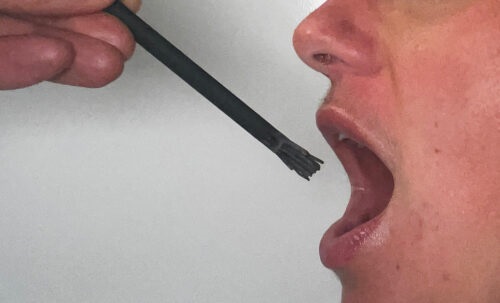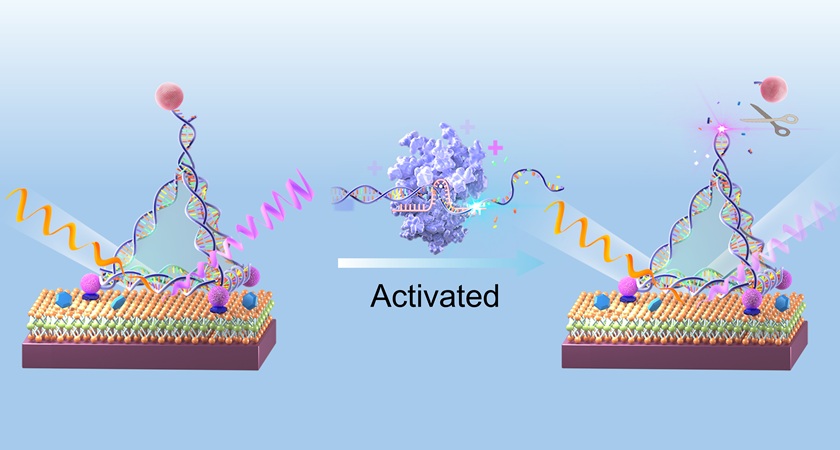Brush Biopsy Test Detects Oral Cancer without Surgery
Posted on 18 Jan 2024
Oral squamous cell carcinoma, the most common type of oral cancer and globally the ninth most prevalent cancer, currently relies on surgical biopsies for diagnosis. This additional referral step poses the risk of losing patients who may not return for follow-up until the cancer has progressed to advanced, more challenging stages. Additionally, surgical biopsies can be problematic as they often collect a mix of cell types, complicating the analysis, and creating the risk of spreading cancerous cells to other parts of the mouth. General blood tests looking for cancer's genetic signals also have limitations, as they do not specify the tumor’s location, preventing quick initiation of treatment after detection. Now, a new test that allows dentists to screen for oral squamous cell carcinoma with a simple brush could early detection of oral cancer without surgery.
The diagnostic kit, created by researchers at the University of Illinois Chicago (Urbana, IL, USA), employs a small brush to gather cells from potential cancerous lesions in the mouth. It operates by detecting tiny segments of genetic material, known as microRNA, which regulate gene expression. Studies conducted by the researchers found a unique expression signature of 40 microRNA sequences that can accurately differentiate between a tumor and normal tissue with more than 90% accuracy. Significantly, their test also successfully works with epithelial cells, the outermost layer in the patient’s mouth. These cells can be quickly and painlessly collected in under a minute by a dentist or nurse using gentle brushing. After collection, the brush is placed in a solution tube and sent to a lab for microRNA analysis, with results being available within days using the current test version.

The brush biopsy test offers several advantages, including specific targeting of the tissue site. The researchers anticipate that this new test will simplify screening, especially in populations that lack regular dental care or are more prone to oral squamous cell carcinoma. For instance, Black men, who experience significantly lower survival rates with this disease compared to other racial groups, could benefit greatly. The potential for using this technology in non-clinical settings opens up opportunities for earlier cancer detection in high-risk groups. Additionally, this approach could eventually help diagnose other oral diseases, each identified by unique microRNA signatures.
“We were the first to observe that brush biopsy samples actually work quite well when you use microRNA,” said Guy Adami of the UIC College of Dentistry. “All you need is a good light and the brushes.”
“There are 600 different diseases that occur in the mouth, and a number of these have already been characterized with microRNAs,” added Dr. Joel Schwartz of the UIC College of Dentistry. “We could use the same approach and really have a profound impact on these kinds of disease.”
Related Links:
University of Illinois Chicago













